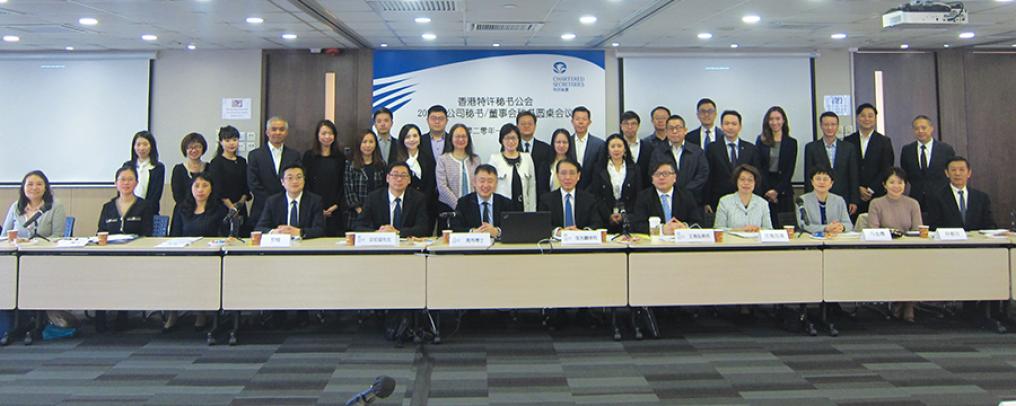CSj gets advice on what it takes to make a career in the not-for-profit sector.
Hong Kong has seen a tumultuous few months with an economy in recession, the ongoing social protests and the current COVID-19 outbreak. The impact on the not-for-profit (NFP) sector has been significant, with reports saying that at least 60% of surveyed NFP organisations saw their funding drop by at least 30% between end January and end February this year, according to a South China Morning Post report (see ‘Coronavirus-battered NGOs say Hong Kong’s charity sector needs government aid to keep doing their work, avoid redundancies’, 8 March 2020).
Bernard Chan, the Chairperson of The Hong Kong Council of Social Service (HKCSS), a statutory body that oversees close to 500 organisations in the social services sector, says the biggest impact will be on NFPs that require regular donations for operations. ‘Agencies are hampered by the economic downturn with less corporate and individual donations as a result of social and political instability. Organisations not receiving regular subvention and without stable income are most vulnerable. The gloomy situation is further worsened by the outbreak of the novel coronavirus pandemic,’ Mr Chan says.
Even without these present challenges of COVID-19 and social unrest, NFP organisations have always been highly reliant on good governance for their continued existence. Given the higher level of public scrutiny, governance failures can result in serious reputational damage and the loss of donor funding. Just two years ago, Oxfam Hong Kong saw a drop of at least HK$100,000 in monthly donations due to a prostitution scandal involving seven members of the charity’s UK arm.
‘Good governance for NFPs is just the same as in commercial business, but for NFPs it’s even more important because they exist not just to earn money but to do good and help those who are in need,’ says Michelle Chow, Consultant at law firm Withers, who specialises in charities and trusts and has a wide range of experience dealing with a variety of charities, large and small.
Directors’ duties
While the NFP sector has seen a lot of improvement in governance standards over last three to five years, governance professionals tell us that there is still room for improvement. One challenge can be the lack of resources.
‘NFPs are founded with diverse missions to advance the betterment of our society. Usually NFPs don’t have abundant resources, both in terms of funds and manpower. The governors are unpaid volunteers, responsible for steering the organisations’ operation and development without material returns,’ Mr Chan says.
Dr CK Lo, founder, Governance and Management Excellence for Public Benefit (GAME) consultancy, thinks that there can be improvements made in the interface between the board and the executive, and in how directors perceive their duties. GAME provides consultancy services and training to NFPs to enhance their standards of governance. A veteran of many decades in the sector, Dr Lo points out that some directors who sit on the boards of NFP organisations think of themselves primarily as volunteers rather than as directors with statutory duties.
‘Most NGOs in Hong Kong are registered under the Companies Ordinance and board members have both legal duties as directors of companies and fiduciary duties as custodians of public resources. One of the things we want to pursue is to help NFP organisations in Hong Kong ensure that their governors take up the duty of governance seriously – not just as volunteers who see their work as discretionary,’ Dr Lo explains.
A social enterprise, GAME has been focusing on how management interacts with the board and whether the composition of the board affects other issues such as the review of management’s performance. GAME and HKCSS conducted a landmark survey of the majority of NFPs in 2018, where one of the key insights was that organisations with high scores in the category of ‘governance health’ often see boards with ‘constructive partnerships’ with management.
Transparency and accountability
April Chan FCIS FCS, Management Committee and Advisory Council member, Company Secretary of the Hong Kong Breast Cancer Foundation and former President of The Hong Kong Institute of Chartered Secretaries (the Institute), reinforces the point made by Ms Chow that the same governance standards are relevant to commercial and NFP organisations. ‘Governance standards such as transparency, accountability and integrity are just as important for NFPs as they are for corporates – the purpose is to make the organisation sustainable,’ Mrs Chan says.
As the former company secretary of one of Hong Kong’s largest listed companies, Mrs Chan has wide experience in both the for-profit and NFP sectors. She points out that in recent years the governance of NFPs has been getting more attention from the general public and donors. ‘Losing the support of society, in particular, the financial support of donors and sponsors, NFPs may run into the risk of not being able to continue to provide the services to the community for which they were originally set up,’ Mrs Chan says.
She also echoes Sir Adrian Cadbury in his landmark report on corporate governance when he called for entities other than listed companies to aspire to similar standards of governance. ‘Stakeholders these days expect a lot more disclosure from NFP organisations. An NFP organisation needs to have a good governance framework, policies and procedures so that it can be accountable to its donors and sponsors in terms of how their money was spent,’ Mrs Chan adds.
Furthermore, it should not be assumed that NFPs can fly under the radar due to their smaller size. Ms Chow points out that some NFPs can be larger than some listed companies, in terms of operations. ‘There are public charities that receive government funding and they can be massive, with the potential to affect many stakeholders,‘ she says.
Board composition
Board composition plays a crucial part in getting the right governance framework in place. Dr Lo points out that people are often invited to join the board of an NFP because of their commitment to, or their expertise in, the NFPs mission. ‘These directors may be very accomplished, they may be experts in their field, but that doesn’t mean they are professionals in governance and they may need help in understanding the role of a director in an NFP organisation – this is an area where governance professionals can help,’ he explains.
Mrs Chan emphasises that NFP boards should have access to professional governance advice. ‘Say, for example, if you have a medical NFP where almost everyone on the board is a doctor or in a medical-related field, a governance professional can help the organisation look into its board diversity. The medical-related NFP may need someone who has finance expertise, or a lawyer who knows the legal implications of providing community medical services, or someone who has knowledge of government funding,’ she says.
Ms Chow, who sits on a number of charities’ boards, calls for fixed terms for directors in order to enhance governance standards by providing a mechanism for director rotation and board diversity. ‘It is good governance for directors to have a fixed term and I have made some amendments to some of the NFP organisation’s articles of association setting the directors’ terms with renewal options, hence enabling directors to step down and creating an opportunity for the NFP organisation to review the make-up of the board from time to time. Fortunately, the charities were aware of the governance implications and they also understood the necessity of having new blood and a variety of expertise on their board of directors,’ she explains.
Having fixed terms also allows for directors who wish to step down to be able to do so, and for both directors and organisations to take a step back and review the situation. While there are concerns about losing experienced board members, Dr Lo suggests that organisations can keep experienced directors in a different capacity. ‘It would be a loss if an organisation were to lose an experienced and knowledgeable director, but there are mechanisms that can be established for people with experience to step down but continue to serve in another capacity. They can become an adviser to board committees, for example, facilitating renewal and regeneration in the organisation,’ he says.
Getting professional help
NFPs, particularly those with resource constraints, tend to be reluctant to hire professional staff who possess the necessary experience and knowledge to ensure sound governance on a long-term basis. However, Ms Chow, who has had extensive experience with the difficulties NFPs encounter when they are staffed by volunteers who have no knowledge of legal or compliance matters, pointed out the lack of professional staff can turn out to be more costly to the NFP organisation.
‘I always tell my clients or potential donors to spend on administration. Donors usually want all their money spent on the frontline because that’s where they want to see the work done, but I ask them – would you be comfortable donating to a charity overseen by volunteers?’ Ms Chow says. She also emphasises that ‘if you are relying on volunteers to do the work, they may not deliver. Having professional staff just saves the NFP organisation so much panic and minimises the chance of things going wrong,’ she says.
From an economic perspective, Ms Chow also points out that the pool of donated funds will be enlarged by other donors. ‘As such, it pays to spend a reasonable percentage on getting professional staff on board for the long term so that the organisation can benefit from sound governance and it should pay its staff fairly so people won’t be deterred from working at the charity,’ she says.
Mrs Chan agrees. She points out that a lack of funding for administration staff can lead to a vicious cycle of continuous staff turnover, where the workload becomes too high and people tend to leave for other jobs.
Getting professional help with compliance and governance matters is of the utmost importance for NFPs. Respondents to this article emphasise the need for NFPs, especially the larger ones, to hire a professional company secretary. Professionals in the governance field are well-placed to help out NFP organisations, particularly in terms of bringing the organisations in line with compliance requirements. These can be quite complex, for example the Inland Revenue Department (IRD) requirements for tax and audit reporting.
This is especially true when NFPs are seeking to diversify income sources and move away from just relying on donations in order to build financial sustainability for their organisations. They may charge for activities or products, or operate as a social enterprise, according to Ng Tze-Wei, board co-chair of Resolve Foundation and a lawyer with Vivien Teu & Co, which specialises in serving charities and social enterprises. She says that thinking innovatively about how to serve the public good beyond the pure charity/donation model is now a global trend. The IRD in its latest tax guide for charities also talked about ‘programme-related investment’ for the first time. ‘The discussion is at its early stage, but it’s a worthy area for professionals working with NFPs to explore as the sector seeks more innovative and sustainable ways to address social and environmental needs,’ she says.
The three Ps
Working as a governance professional in the NFP sector can be a highly rewarding career path, but it will be apparent from the foregoing that there are special characteristics to such work. So, what does it take to make a successful career in this field? Mrs Chan has a ‘3P’ philosophy for anyone wishing to practice in this field – the 3Ps are principle, passion and patience.
The importance of ‘principle’ has largely been covered above – the value that governance professionals bring to NFPs is their dedication to upholding the core principles of good governance. ‘Passion’ is usually what drives professionals to work in the NFP sector. ‘If one is looking for money, better not, but working in an NFP is certainly rewarding if you have a passion to serve the community. If you have that approach, it is a very rewarding job with a lot of satisfaction,’ Mrs Chan says.
‘Patience’ is probably the least known and most underrated of the three Ps. Mrs Chan emphasises that patience is crucial, particularly for governance professionals who come from the corporate sector, since the more limited resources and different priorities of many NFP organisations may mean that it will take time for change to be effected.
She cites as an example the project at the Hong Kong Breast Cancer Foundation (HKBCF) to build a service centre in Kowloon. The project stemmed from HKBCF’s research done in 2011, which revealed that women from low-income groups mostly living in Kowloon and New Territories recorded lower breast cancer screening rates and a higher number of advanced-stage breast cancer cases. After years of negotiation with the government and the support of The Hong Kong Jockey Club Charities Trust, the HKBCF Jockey Club Breast Health Centre (Kowloon) was built and officially opened in 2018 to provide free mammography screening to the financially challenged, and to offer care and support to breast cancer patients and survivors.
Ms Ng concurs. She emphasises that professionals working for NFPs need to adopt an ‘entrepreneurial mentality’ and should be open to learning from their experiences, whether it is with the NFP or following the latest developments in the NFP sector, where a lot of best practices are still being built up and shared at the moment. ‘Be willing to see the process as an open conversation and a colearning process,’ she says.
‘Successfully bringing best practices to NFP organisations will depend on being sensitive to their existing set-up – such as their capacities, stages of development and any knowledge gaps they may have. And also be prepared to share your best practices with the sector,’ she says.
Dr Lo also stresses the importance of understanding the mission statement, the uniqueness of the governance culture and the need for continuous learning. ‘I have served on different boards and it’s not always easy to have a firm grasp of whether the organisation is doing the right thing. You can have all the good processes in place, but at the end of the day you design those processes to help the organisation achieve its mission – this is governance with a purpose not governance for governance sake. That means we have to know what the mission really means and how to measure the social impact of the organisation’s work – it’s a journey of learning,’ Dr Lo says.
Poo Yee Kai
Journalist



